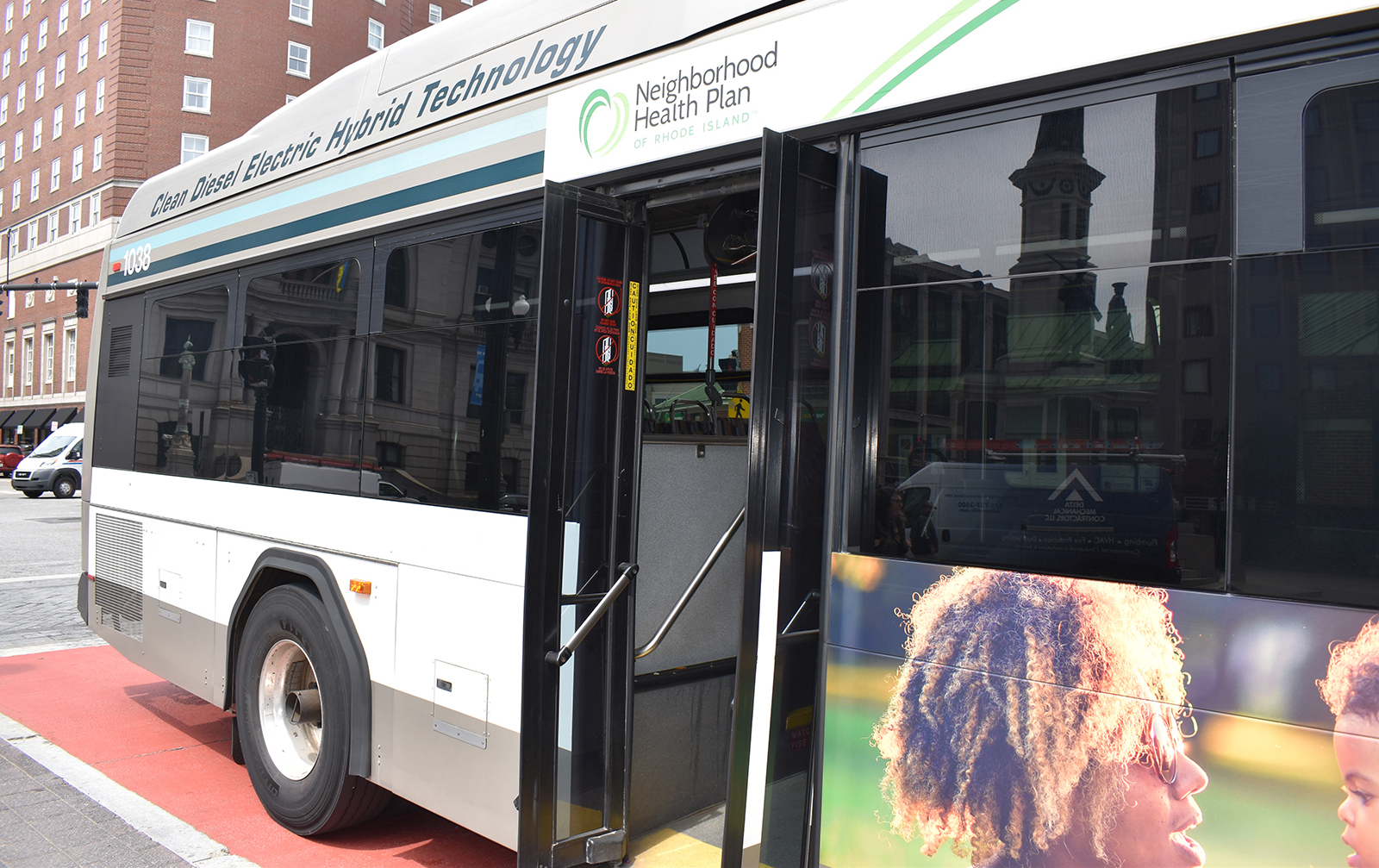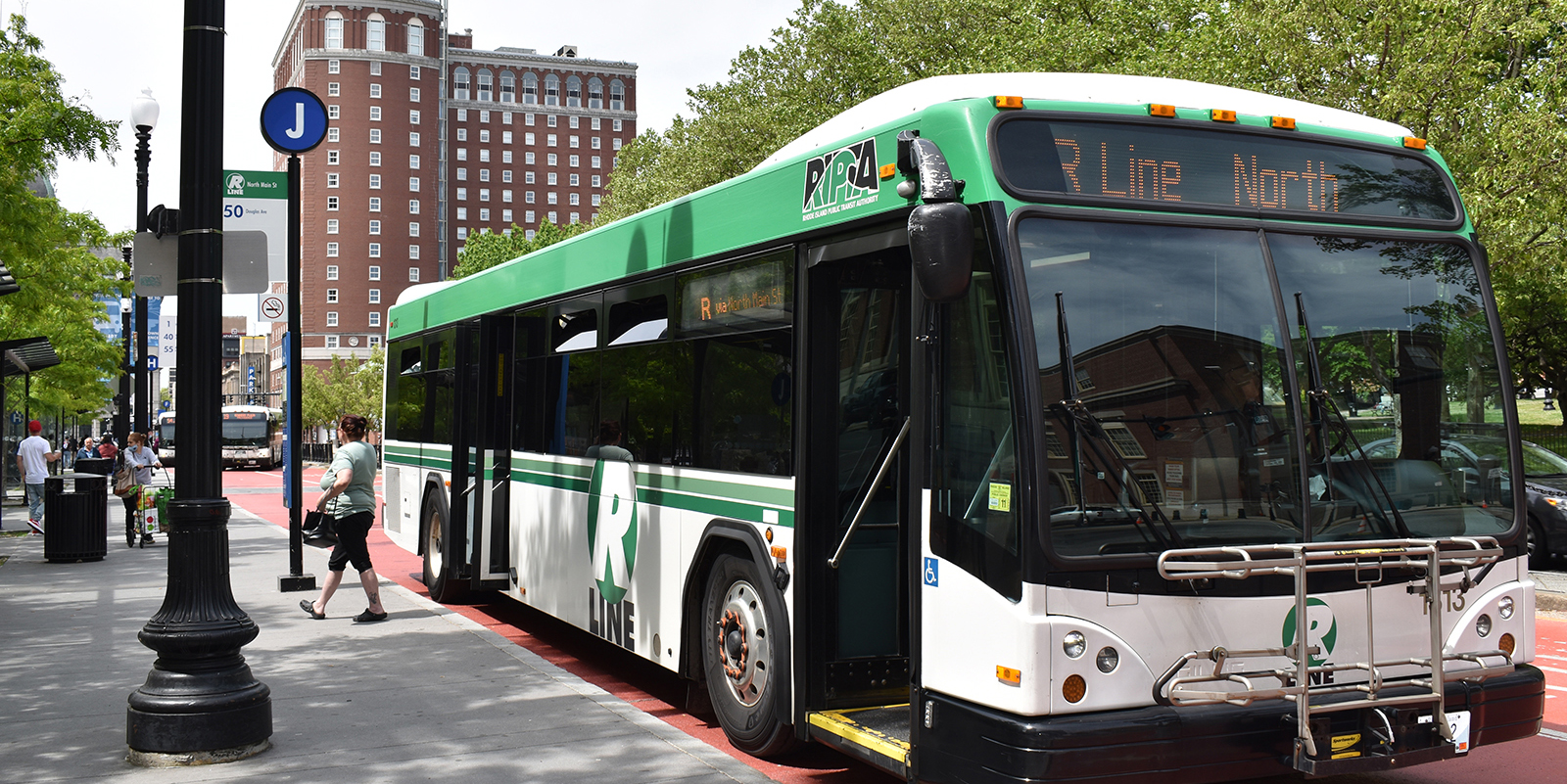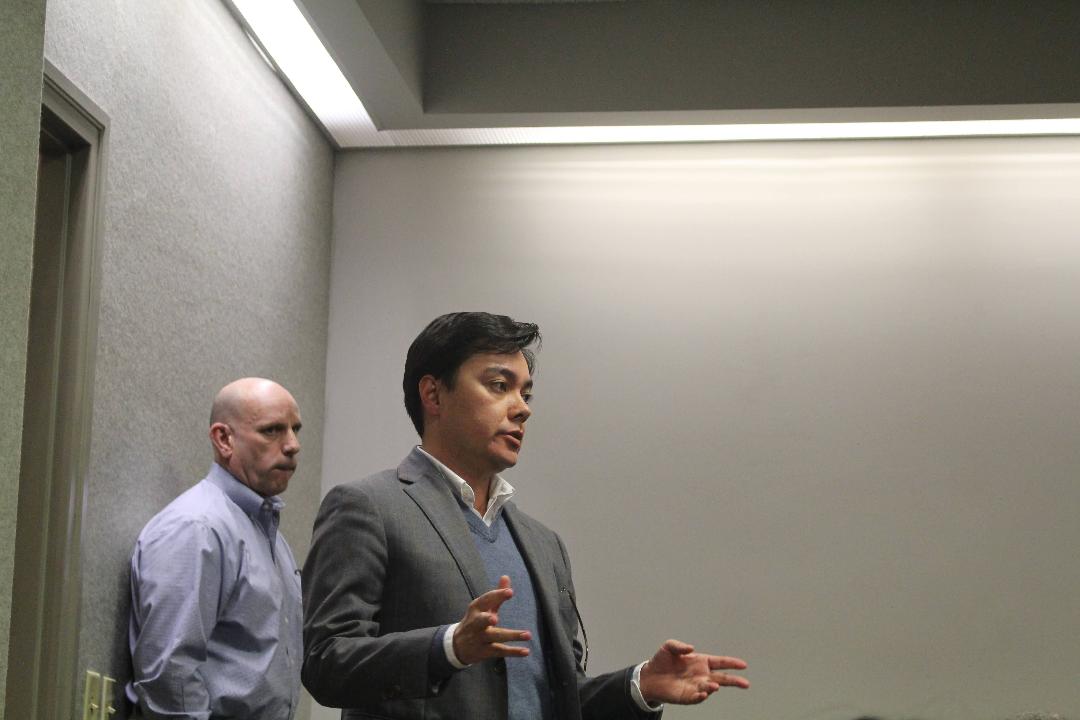Minor Amendment Creates Major Climate Fail
Stakeholders claim a proposed change to Rhode Island’s transportation improvement program ignores mandate to reduce climate emissions
February 14, 2022
Transit and climate advocates are concerned the Rhode Island Department of Transportation (RIDOT) is fast-tracking a plan to spend $748 million in federal Infrastructure Investment and Jobs Act funding with virtually no consideration for state law that mandates reductions in greenhouse gas emissions.
Act on Climate legislation, passed last year, requires Rhode Island to reach net-zero emissions by 2050, with specific benchmarks every 10 years, or else face legal challenges. The Executive Climate Change Coordinating Council (EC4), a 12-member council made up of state agency leaders, is responsible for ensuring the state meets its climate goals.
Rhode Island Department of Environmental Management (DEM) acting director Terrence Gray is the EC4 chair. ecoRI News reached out to DEM for comment, but an agency spokesperson responded via email that “I’m sorry but at the moment we’re not informed enough about this issue to answer your questions by your deadline.”
The transportation sector accounts for nearly 40 percent of the greenhouse gas emitted in Rhode Island. It’s the fastest-growing contributor to climate pollution.
Many stakeholders, including some lawmakers, are perturbed that RIDOT appears to be rushing a decision that favors the car-dominant status quo while underfunding public transit and bicycle and pedestrian projects and ignoring the climate crisis.
Rep. Lauren Carson, D-Newport, noted a provision in the Act on Climate law, which she helped write, requires state agencies to integrate climate resiliency into their budgets.
Rhode Island General Law 42-6.2-8 reads, in part, “Addressing the impacts on climate change shall be deemed to be within the powers, duties, and obligations of all state departments, agencies, commissions, councils, and instrumentalities … Each agency shall have the authority to promulgate rules and regulations necessary to meet the greenhouse gas emission reduction mandate.”
Carson and others ecoRI News spoke with for this story are bothered but not surprised by RIDOT’s callous disregard of climate change and the need to reduce greenhouse gas emissions.
Grow Smart Rhode Island noted hundreds of millions in the 2022-2031 State Transportation Improvement Program (STIP) are budgeted for highway expansion projects. STIP is Rhode Island’s list of budgeted transportation projects over a 10-year period.
Patricia Raub of RI Transit Riders noted the first four years of STIP funding is dedicated to “business-as-usual” projects. Liza Burkin, lead organizer of the Providence Streets Coalition, said RIDOT continues to operate as some independent entity that isn’t required to answer to the public or even the General Assembly.
“This is a terrible investment. We need to understand the connection between transportation and climate,” Burkin said. “We can’t just keep building more highway. We can’t even afford to maintain what we have.”
She noted there are plenty of sidewalk, bike path and public transit projects that need funding and would create jobs. She pointed to a white paper published last year by a City Council member that showed in Providence alone there are 26 miles of residential streets with no sidewalks.
Grow Smart’s deputy director, John Flaherty, said RIDOT’s spending plan also fails to include funding necessary to implement the state-approved Transit Master Plan or the Statewide Bicycle Mobility Plan.
Flaherty, a member of Rhode Island’s Transportation Advisory Committee (TAC), said the committee was advised Feb. 3 that it is to vote on STIP Minor Amendment #2 at its Feb. 17 meeting. If the committee recommends the amendment, it moves to the State Planning Council for final approval. TAC has seldom if ever not approved an amendment. The same can be said about the State Planning Council.
TAC won’t be accepting public comment at the Feb. 17 meeting about amendment #2 because it has been labeled “minor,” but public comment will be accepted on the mandatory four-year Federal Certification Review of the State Planning Council. Online public comment ended Feb. 14.
Flaherty noted the “minor amendment” is a 487-page document comprising of 152 proposed project changes and the addition of nearly $750 million in new federal funds.
“As a minor amendment there’s reduced opportunity for public engagement — no public hearing, and just 10 days’ notice for the public to register comments through a website portal,” Flaherty said. “There’s nothing minor about it.”
The Green Energy Consumers Alliance has noted its concern with the STIP amendment proposed by RIDOT and the Rhode Island Public Transit Authority. In a seven-page document, the nonprofit, which works in Rhode Island and Massachusetts to speed the transition to a low-carbon future, lays out its reasoning.
The organization’s three key concerns are shared by others:
No consideration for Act on Climate, and no analysis that assesses projects according to their emissions impact. By failing to align investments with the state mandate to reduce emissions, approving the STIP amendment will jeopardize Rhode Island’s ability to meet its climate goals. There is not enough information on STIP projects to indicate whether they will increase or decrease greenhouse gas emissions.
In an email to ecoRI News, RIDOT spokesperson Charles St. Martin wrote, “Good roads reduce emissions by providing a safer and faster way to get to a destination rather than having vehicles struggle over decaying pavement and unsafe bridges or sit in congestion when a new configuration can relieve that congestion.”
He noted that the STIP amendment “targets funding for reducing emissions of harmful greenhouse gases through congestion mitigation programs and investments in transit.” He said the amendment “is consistent with the objective of the EC4.”
Poor allocation of climate-specific funding within the Infrastructure Investment and Jobs Act, as $25.45 million for “carbon reduction” should be used to the fullest extent to decrease emissions. Repaving and maintaining existing bike paths is not going to decrease emissions; neither are highway signs. “We need bigger, bolder investments that will create new active mobility paths, improve transit, or expand EV [electric vehicle] charging.” The federal money should be “prioritized on projects that will deliver the biggest bang for our buck to reduce emissions by 2030. Without an analysis of expected GHG-emissions reduction, there’s no way to compare how investments will impact the state’s 2030 goal.”
“RIDOT sincerely hopes that the Green Alliance is not asking RIDOT to let bike and pedestrian paths fall into a state disrepair so that both riders and walkers are not safe and the paths become unusable,” St. Martin wrote. “In the same way, highways without signage become highly unsafe and could cause injury or death. Guidance for this specific tranche of funding is specific. It must be used for state of good repair projects, not new bike paths or transit.”
Minor Amendment #2 should not have been proposed as minor. The main distinction between major and minor amendments is whether the cost of the project addition or deletion is less than or more than $10 million in the first four years of the STIP and whether project costs are less than or more than $20 million in the last six years of the STIP. “It’s concerning that the allocation of a historic $550 million contains no new project additions worthy of a major amendment.”
The amendment was in no way crafted to restrict the public’s ability to weigh in “but rather to conform to applicable law,” according to St. Martin.
The difference between a minor and major amendment is defined on Page 3 of this Jan. 5 memorandum of understanding between state and federal agencies.
“There remains a question whether the proposed amendment meets the letter of the rule for classification as minor but it certainly doesn’t reflect the spirit of the rule,” Flaherty said.
The proposed STIP amendment also seems to flout a 2021 guidance memorandum from the U.S. Department of Transportation outlining its expectations that state DOTs focus significant discretionary spending to achieve broader climate, equity, safety and economic goals, including through enhanced multimodal infrastructure and avoidance of highway expansion, according to Flaherty.
Deputy assistant secretary of transportation Christopher Coes reinforced these points during Grow Smart’s Jan. 19 Transit Forum.
“This memo also encourages state DOTs to be mindful, and this is the really key part here, be mindful of their ability to flex resources to support multimodal projects,” Coes said. “This bipartisan infrastructure … represents a generational opportunity to rethink what transportation means in our communities and in the built environment.”
St. Martin said RIDOT “followed guidance from the Federal Highway Administration on how to structure the planning” for the Infrastructure Investment and Jobs Act funding. He said it is a matter of policy that bike and pedestrian amenities are incorporated in many of the agency’s road and bridge projects.
Flaherty said he checked with Massachusetts and Connecticut and neither state is proceeding with STIP amendments at this time, as they await further federal guidance and evaluate priorities. In Colorado, he noted the state’s Transportation Commission has enacted a rule change requiring its DOT to measure the climate impacts of planned projects. (Shoshana Lew, executive director of the Colorado Department of Transportation, is a former chief operating officer for RIDOT.)
He said Rhode Island’s continued embrace of highway widening and 20th-century transportation choices swells traffic congestion, increases vehicle miles traveled and exacerbates the climate crisis.
Carson noted both DEM and the Rhode Island Office of Energy Resources are waiting for further guidance before spending Infrastructure Investment and Jobs Act funding. She said the STIP amendment is being ramrodded.
RIDOT’s long-standing tradition of minimizing investment in public transit and bicycle and pedestrian infrastructure has long been empowered by lawmakers. Earlier this month, for example, Reps. George Nardone, Sherry Roberts and Michael Chippendale, all Republicans, co-sponsored a bill that would amend state law concerning sidewalks.
Their legislation includes this notable paragraph: “All maintenance of sidewalks along state highways shall be the responsibility of the state. Such maintenance shall not include snow removal, sweeping and cleaning.”
To alter the STIP’s minor amendment to better address 21st-century challenges, the Green Energy Consumers Alliance has recommended:
Prioritizing investments that reduce transportation emissions. “Emissions impact needs to be part of the prioritization process for STIP projects. No spending on a project should move forward until an assessment has been done unless it is for public safety,” such as repairing bridges.
Propose new investments that better align with the goals of the Carbon Reduction Fund and Act on Climate mandate.
Submit a proposal to spend federal infrastructure funding as major amendment to provide more robust public engagement.
“DOT needs to make a larger commitment to reducing climate emissions,” Mal Skowron, transportation program and policy coordinator for the Green Energy Consumers Alliance, said. “With this amendment, we are taking steps backward.”
The first Act on Climate benchmark must be met by 2030. The state’s latest STIP runs through 2031.



